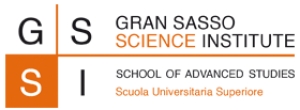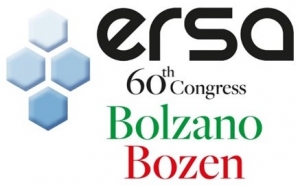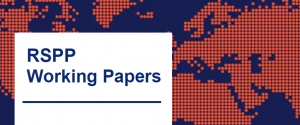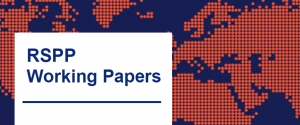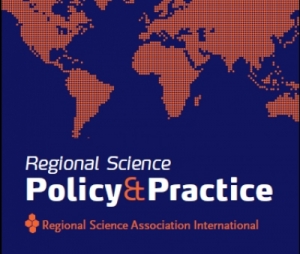Archives
Elisabete Martins
Invitation Special Issue in Economia Journal on "Applications and Methods for Spatial Economic Data"
Special Issues
Applications and Methods for Spatial Economic Data
Over the last decades, the georeferenced socio-economic datasets to individual level). Also, recent advances and developments in computer programming, geographic information systems and spatial econometric softwares provide the tools for handling this complex information. Spatial data add important contextual and locational information given the opportunity to estimate externalities, social interactions, spatial dependence and spatial heterogeneity in regression models. Techniques to analyze spatial Geography, Urban and Regional Planning and Development, Real Estate Studies, among others. This Special Issue aims to gather papers that include techniques in Spatial Statistics and Spatial Science. Topics include, but are not limited to: spatial regression model, exploratory spatial data analysis, spatial panel data models, regressions, spatial nonparametric methods, computational techniques in large spatial data sets. Both theoretical and empirical studies are welcome. All submitted articles will undergo rigorous peer review, and in the event of acceptance, are ensured rapid publication and high visibility.
Guest Editor:
Dr. Marcos Herrera. CONICET-IELDE, National University of Salta, Argentina. E-mail: This email address is being protected from spambots. You need JavaScript enabled to view it.
Deadline for manuscript submissions:
15 August 2020
Suggested links:
To make a submission, please follow this link and select the corresponding Issue.
To download this announcement PDF version, please click here.
AESOP Newsletter 04/2020
|
||||||||||||||||||||||||||
|
Research doesn't stop. New webinar series at GSSI
The GSSI is about to launch "The Social Sciences webinar series" starting on May 5, 2020, with the intent of spurring the debate about key topics in Regional Science and Economic Geography and keep us intellectually active, while staying safe and physically distanced as this difficult lockdown time requires. The sessions will feature key scholars in the field coming from some of the best universities all over the world.
The webinars are free and public. For registration and information on how to participate and intervene please write to: This email address is being protected from spambots. You need JavaScript enabled to view it.
Call for Papers – North American Meetings of the Regional Science Association International, San Diego, California, November 11-14, 2020
Call for Papers – North American Meetings of the Regional Science Association International, San Diego, California, November 11-14, 2020
Smart Cities and Connected Regions
Join us in San Diego, California for the 67th North American Meetings of the Regional Science Association International (RSAI) sponsored by the North American Regional Science Council (NARSC) and co-hosted by the Western Regional Science Association. The deadline for submission of abstracts is July 5. The theme for this year’s meetings is “Smart Cities and Connected Regions”. While we encourage submissions that fit this theme, all topics that are of interest to regional scientists are welcome”. The conference will be held at the beautiful Westin Hotel in San Diego’s Historic Gas Lamp Quarter, November 11–14, 2020. You can learn more about the conference, submit an abstract, and register for the conference and workshops at the NARSC Website at http://www.narsc.org/.
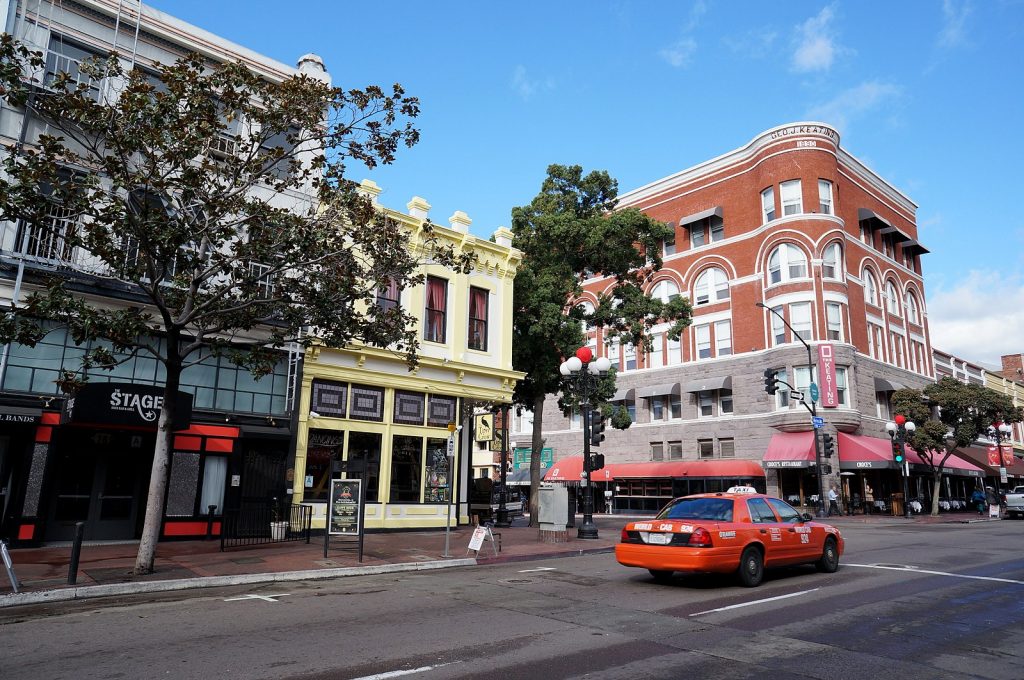 |
|
 |
San Diego’s historic Gas Lamp Quarter
There will also be a field trip to San Diego’s Barrio Logan neighborhood, which has been described as the “epicenter of the city’s Mexican-American culture”. The field trip will include a guided tour of Barrio Logan, as well as a visit to some of the neighborhoods excellent craft breweries.
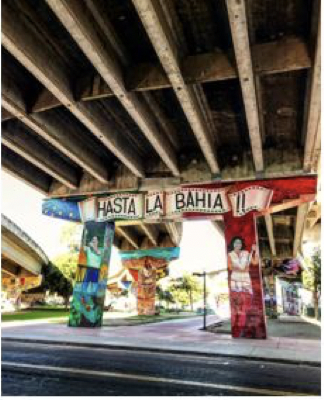 |
 |
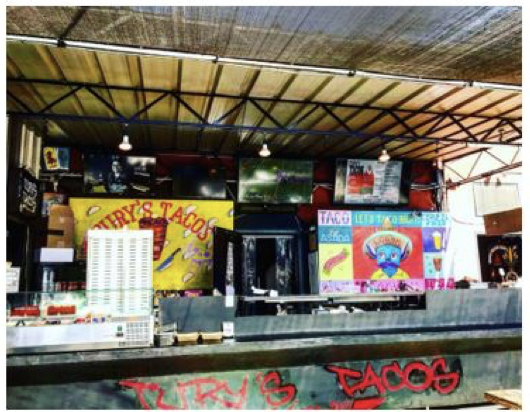 |
We are in the process of organizing several pre-conference workshops, as well as keynote speakers. This year’s keynote speakers will include Sergio Rey of the University of California, Riverside, Kara Kockelman of the University of Texas in Austin, and Bhārat Dahiya of Thammasat University (Thailand)
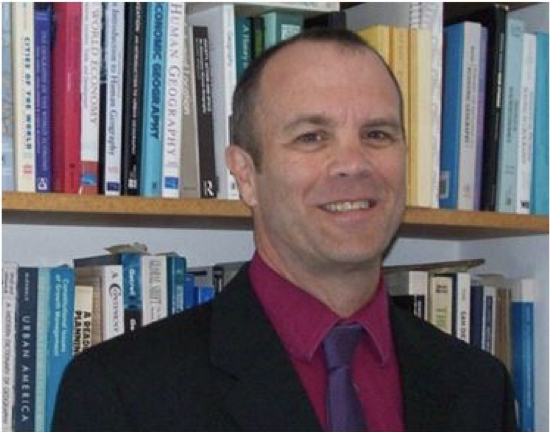 |
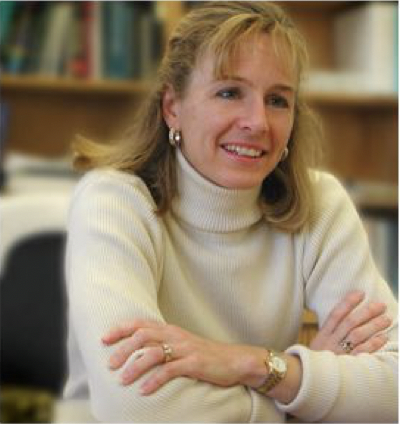 |
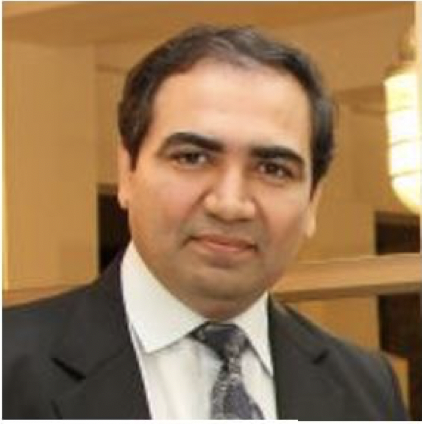 |
| Sergio Rey | Kara Kockelman | Bharat Dahiya |
This year we are planning several special sessions and events focused on graduate students and young scholars. There is a special section of the conference website devoted to these sessions and events. This will be updated as new sessions/events are confirmed, so please check the website frequently.
We are also planning to have numerous organized sessions devoted to specific topics. Do you have an interest in organizing a special session or a series of special sessions? If you do, please contact NARSC Executive Director, Neil Reid (This email address is being protected from spambots. You need JavaScript enabled to view it.), as soon as possible.
For overseas attendees, we are offering expedited abstract acceptance to anyone coming from a country that requires a visa to enter the United States. Once you have submitted your abstract, and you need an acceptance letter, please contact NARSC Executive Director, Neil Reid at This email address is being protected from spambots. You need JavaScript enabled to view it..
We understand that the current Covid-19 pandemic has created a lot of uncertainty about conferences, and that a number have been cancelled. At this point in time, our plan is to proceed with the conference. We will, of course, continue to monitor the situation and adjust our plans if conditions necessitate. If you do register for the conference and are unable to attend because of restrictions related to Covid-19, we will refund your registration fee.
Abstract Submission and Registration
Click on the link to the conference section for general information on the conference. To register for the conference or submit an abstract/session online you must first login to the User Area. If you attended a NARSC conference over the past couple of years or are a member of a North American regional science organization, when you reach the login page of the User Area, you will be asked to enter your provided username and password. Otherwise, when you reach the login page of the User Area, you will be asked to click on a link and enter your e-mail address so we can check if you are already in our database. If you are in our database, your username and password will be e-mailed to you so you can login. If you are not in our database, you will need to register for a free NARSC user account and then you will be able to register for the conference and submit an abstract.
Once logged, you can change your password, update your profile, submit an abstract/session, register for the conference, and check the status of your registration. You will be able come to your account in the User Area subsequently using your valid username and password. In case you forget your password, just contact technical support at This email address is being protected from spambots. You need JavaScript enabled to view it. with your e-mail address and your password will be e-mailed to you so you can login.
Please note that there is a surcharge for individuals who are not members of RSAI. When you are ready to register for the conference please check your RSAI membership status. You can do that by consulting the RSAI Members List. If you have any questions regarding your RSAI membership status or would like to join RSAI please contact Elisabete Martins (This email address is being protected from spambots. You need JavaScript enabled to view it.) at the RSAI Central Office.
Individual papers and organized sessions must be submitted online in the abstract submission section of the website between now and JULY 5, 2020. The conference registration section is open and allows secure electronic financial transactions. Information about the workshops will be posted in late June. If you are potentially interested in attending any workshops it is suggested that you wait until information about them is available before registering for the conference. Be sure to consult the conference website for additional information and details.
Conference organizers welcome individual papers and organized sessions relating to a wide variety of topics that are included within the diverse realm of regional science. As usual, there will be several organized sessions. If you are interested in participating in one of these organized sessions, please contact the session organizers. Details about these can be found here. Please note that the list of special session is updated on a regular basis, so please check back.
NARSC an international scholarly organization that focuses on regional analysis, ranging from urban and spatial theory to applied problems in regional development, sustainability, environmental management, and rural land use. We are an interdisciplinary association, with members representing fields as diverse as economics, agricultural economics, public policy, urban planning, civil engineering, geography, finance, and demography. The annual North American RSAI conference is the premier regional science meeting in North America and attracts scholars and practitioners from around the world.
A block of rooms has been reserved at the The Westin San Diego Gas Lamp Quarter at a specially negotiated rate of $229 (plus applicable taxes and fees) for a double-occupancy room. Please book the conference hotel through the NARSC website. By doing so, NARSC will get credit for your booking. Bookings can be made here.
If you have questions, here is contact information:
- Local arrangements: This email address is being protected from spambots. You need JavaScript enabled to view it.
- Program Chair: This email address is being protected from spambots. You need JavaScript enabled to view it.
- Overall Arrangements: This email address is being protected from spambots. You need JavaScript enabled to view it.
We look forward to seeing you in San Diego.
http://www.narsc.org/newsite/conference/special-session-call-for-papers/.
Photo credits for Gas Lamp Quarter photographs – left to right - By Visitor7 - Own work, CC BY-SA 3.0, https://commons.wikimedia.org/w/index.php?curid=31271319; By Winwinintl - Own work, Public Domain, https://commons.wikimedia.org/w/index.php?curid=8532220; By Leandro Neumann Ciuffo - Gaslamp district - 2, CC BY 2.0, https://commons.wikimedia.org/w/index.php?curid=28377633.
ERSA2020 Congress postponed in 2021
Virtual ERSA2020 Event under examination
Due to the global health issue related to the coronavirus outbreak, the Local Organising Committee together with the ERSA Board and Executive bodies (EOC and ERSAC), have the regret to announce that this year’s 60th Annual ERSA Congress of Bolzano, 25-28 August, is postponed to 2021 in the same location.
To make sure that our Regional Science Community does not miss out on the extraordinary input of this year’s Congress, including 926 submissions from around the world, we are considering all the options to organise an Online Event at the same period, late August.
The format and content of an ERSA2020 Online Event are currently under examination. Accepted authors of this year’s Congress have also been approached regarding the opportunity of presenting their research.
Further details will be communicated in the coming weeks.
André Torre Thomas Streifeneder and Andrea Omizzolo,
ERSA President Co-Chairs of the Local Organising Committee
RSPP Working Paper nº 2020.002. Special Series on Covid 19 | Socio-Demographic Disparities in COVID-19 Case Rates and Testing: An exploratory spatial analysis of ZIP code data in Chicago, IL
Special Series on Covid 19
RSPP Working Paper nº 2020.002
Socio-Demographic Disparities in COVID-19 Case Rates and Testing: An exploratory spatial analysis of ZIP code data in Chicago, IL [PDF]
By Kevin Credit
The recent release of ZIP code level data on the novel coronavirus (COVID-19) provides an important opportunity to look at neighborhood-level socio-demographic and economic correlated of case and testing rates. This exploratory spatial analysis finds that black neighborhoods and those with older residents and higher proportions of employment in service occupations tend to have higher case rates (even when controlling for access to testing sites), while Hispanic neighborhoods have a lower than expected level of testing for COVID-19, even when controlling for the level of observed infection activity.
Margaret Bock of West Virginia University to Receive the 20th Annual Benjamin H. Stevens Graduate Fellowship in Regional Science
Margaret Bock, a Ph.D. candidate in Economics at West Virginia University has been selected as the winner of the Twentieth Annual Benjamin H. Stevens Graduate Fellowship in Regional Science. The Fellowship will provide a 2020–2021 Academic Year stipend of $30,000 to support Ms. Bock’s dissertation research entitled, “The Road Less Traveled: Economic Analysis of Roads and Highways.”
The research investigates the connection between roads and highways on several aspects of urban and rural locales including commuting, mortality, and mayoral elections. The results of this dissertation will be of wide-ranging interest to regional scientists and policymakers given current interest in the state of infrastructure in the United States, poising Ms. Bock to make several scholarly and practical contributions. Ms. Bock’s doctoral research is supervised by Joshua Hall, Professor and Chair of Economics at West Virginia University.
In addition to selecting the Fellowship recipient, the Selection Committee identified two applicants as meriting special recognition in the 20th Annual Competition: Melissa Haller, Ph.D. student in the Department of Geography at the University of California Los Angeles (UCLA), supervised by David Rigby; and Sydney Schreiner, Ph.D. student in Agricultural, Environmental, and Developmental Economics at The Ohio State University, supervised by Mark Partridge.
The 20th competition winner and finalists will be recognized at the awards banquet luncheon of the upcoming November 11–14, 67th North American Meetings of the RSAI in San Diego, California.
The Fellowship is awarded in memory of Dr. Benjamin H. Stevens, an intellectual leader whose selfless devotion to graduate students as teacher, advisor, mentor, and friend continues to have a profound impact on the field of regional science. Fundraising efforts to increase the Fellowship’s endowment are ongoing. Donations should be sent to: The Stevens Fellowship Fund, First Financial Bank, Attn. Trust Department, 1205 S. Neil Street, Champaign, IL 61820 USA. Checks should be drawn to The Stevens Fellowship Fund. Donations may also be made by credit card through the NARSC website at www.narsc.org/newsite/donations2.php.
The 2020 Stevens Fellowship Selection Committee is composed of: Elizabeth Mack, Geography, Michigan State University (Chair); Daoqin Tong, Geographical Sciences and Urban Planning, Arizona State University; Nicholas Nagle, Geography, University of Tennessee; and Steven Deller, Agricultural and Applied Economics, University of Wisconsin-Madison. The Stevens Fellowship Committee administrates the Stevens Fellowship Fund on behalf of the North American Regional Science Council; its members are: Tony Smith, Chair; David Plane, Secretary; Michael Lahr, Treasurer; Janet Kohlhase; and Neil Reid, Executive Director of NARSC.
The Committee thanks the 24 students who entered the competition in 2020, as well as their dissertation supervisors. Faculty at all North American Ph.D. programs related to the interdisciplinary field of Regional Science are encouraged to have their best students apply for the Twenty-First Annual Stevens Graduate Regional Science Fellowship. The winning student’s dissertation research will be supported during the 2021–2022 year with a one-year stipend of $30,000. The application deadline is February 15, 2021. Full submission guidelines will be posted at http://www.narsc.org/newsite/awards-prizes/applications/
April 2020
RSPP Working Paper nº 2020.001. Special Series on Covid 19 | Differentiated territorial effect of Covid-19 on the tourism sector in Morocco
Special Series on Covid 19
Differentiated territorial effect of Covid-19 on the tourism sector in Morocco [PDF]
Postdoc Opening in Spatial Social Networks at ANET Lab, Budapest
We are opening a 2-year Post Doc position in the ANET Lab Budapest.
ANET Lab is an interdisciplinary group at the Institute of Economics in Budapest and aims to uncover how urbanization and the structure of social networks are interrelated. We build our research projects on large data bases and intend to answer the questions how social networks form in geographical space, how the structure of social networks explain economic and technological progress in cities and how dynamic learning and spreading processes happen in spatial social networks. For more information, see our website at http://anet.krtk.mta.hu.
We are seeking a Post-Doc colleague who will be employed by ANET Lab from September 2020 until June 2022. The new colleague is expected to join at least one of the ongoing research projects of the Lab but will be given the opportunity to start new ones as well. Our projects include:
- Automation and development: we investigate how AI and automation threatens occupations, influences industry structure, business opportunities and labour mobility in regions.
- Diffusion and churn of innovation: we develop an empirical network-science framework to predict the adoption and disadoption of products and technologies at local scales.
- Organizational networks, skills and performance: we analyse the relationship between skills of employees, the network structure of their interactions, and firm performance.
- Price of contact reduction: we aim to understand the extent to which mobility restrictions in certain industries help slowing the spread of COVID-19 in the light of consequent economic effects.
- Social networks and inequality: we explore how network structures in cities contribute to income and educational inequalities.
- Technological diversification of regions: we explore how collaboration networks facilitate the production of new technologies in regions, and the path-dependence regions follow in technological development.
Please, find the call on this link.
Application deadline: May 31, 2020. Starting date: September 1, 2020 or upon agreement.
RSPP Call for Papers on Drivers, Impacts and Policies of Covid19
RSPP Call for Papers on Drivers, Impacts and Policies of Covid19
COVID-19 is spreading around the world while governments try to control the spread of the disease taking into account the potential of the health systems to cure patients and the capacity of their economies to survive and react to the constraints imposed to save lives.
The aim of the RSPP Special Issue Drivers Effects and Policies of Covid19 is to gather regional science research along the following lines:
- Analytical papers on the impacts on regional and urban economies of Covid-19 and of the policies implemented to control the disease.
- Policy papers on the regional and urban impacts of alternative Covid-19 policies.
- Prospective papers on sustainable urbanization post Covid-19.
- Epidemic bio-economic models and methods.
Paper submission can be made in the Platform of Regional Science Policy and Practice https://rsaiconnect.onlinelibrary.wiley.com/journal/17577802
Papers accepted and edited will be immediately available free on-line. All the papers on this topic will be compiled in one or more Special Issues on Drivers, Impacts and Policies of Covit19 published in the second issue of 2021.
The order of submission and acceptance is important if more than one issue is published on the topic:
- First deadline May 30th
- Second deadline July 31st
- Third deadline November 20th
RSPP Working Papers on the topic are very much welcome. For that use the template available (download) and submit it to This email address is being protected from spambots. You need JavaScript enabled to view it.. We review and assess the submission of Working Papers and can accept sequential versions of each when new data can provide updated evidences.
The Editorial Team
About Us
The Regional Science Association International (RSAI), founded in 1954, is an international community of scholars interested in the regional impacts of national or global processes of economic and social change.




